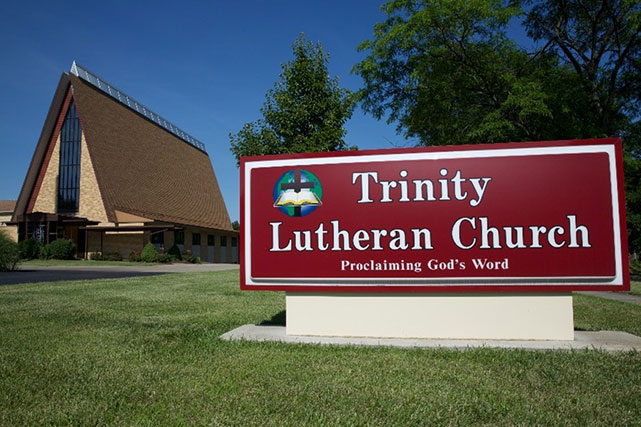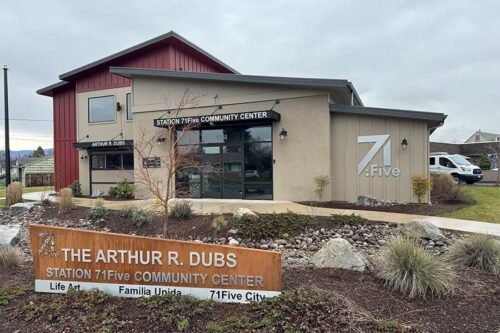
In 2012, the state of Missouri instituted a program that provided grants to qualifying organizations to use recycled tires for resurfacing playgrounds. The program not only allowed grant recipients to provide safe surfacing for playgrounds, but it also encouraged the use of recycled tires, thus reducing landfills and benefitting the environment. It was a win-win.
Missouri chose 14 grant recipients that year to make use of its Scrap Tire Program. Unfortunately, the state denied the use of this program to Trinity Lutheran Church’s Learning Center for preschoolers—all because it was operated by a church. This, despite the fact that the church was ranked fifth out of 44 applicants by Missouri itself. Missouri’s actions clearly violated the church’s free exercise of religion.
But a scraped knee on the playground of a preschool run by a church hurts just as much as it would on a secular one. And it took a federal lawsuit that went all the way up to the Supreme Court to show that religious organizations can’t be treated worse than everyone else merely because they are religious.
Let’s look at the details of this case.

Who is Trinity Lutheran Church?
Trinity Lutheran Church has faithfully served the people of Columbia, Missouri, for over 90 years.
Whether providing support for foster children, donating labor, food, and funds to a local county food bank, or helping with Habitat for Humanity building projects all over the community, the church lives its mission to make disciples.
In 1980, the Learning Center was established as a not-for-profit organization with the mission of providing quality preschool education and daycare for families in Boone County, Missouri, and the surrounding areas. It merged with Trinity Lutheran Church in 1985.
The Learning Center is open to all members of the community, and 90 percent of children who attend the preschool do not attend Trinity Lutheran Church’s regular Sunday church services. Between the children who use its playground during normal operating hours and the kids from the surrounding neighborhoods who use it after school or on weekends, Trinity Lutheran Church’s playground is well-trafficked and well-loved.
Trinity Lutheran Church of Columbia v. Comer
As with any preschool or daycare, children’s safety was one of Trinity Lutheran Church’s highest priorities. At the time, the Learning Center’s playground surface was made of pea gravel. The church wanted to switch to a safer pour-in-place rubber surface.
That’s when the church sought to participate in the Playground Scrap Tire Surface Materials Grant Program, administered by the Missouri Department of Natural Resources. It is a program to give grants to nonprofit organizations to reuse scrap tires for playgrounds. So the church applied to the program and was ranked fifth out of 44 applicants by Missouri itself.
Yet the state of Missouri wanted to deny this generally available benefit to the Learning Center at Trinity Lutheran Church—simply because it was a church.
That’s when the church filed suit. An organization shouldn’t be denied a benefit available to everyone else simply because it is religious.
Alliance Defending Freedom represented Trinity Lutheran Church all the way to the U.S. Supreme Court.
Case timeline
- May 2012: The Department of Natural Resources denied Trinity Lutheran Church’s application to its Scrap Tire Program, citing Missouri’s constitutional prohibition against providing money to “any church, sect or denomination of religion.”
- January 2013: Trinity Lutheran Church filed suit in federal court for violations of its First Amendment right to the free exercise of religion.
- September 2013: The district court dismissed the church’s claims. ADF filed for a motion for reconsideration but was denied.
- February 2014: ADF appealed to the U.S. Court of Appeals for the 8th Circuit. Opening briefs were filed that April.
- May 2015: The 8th Circuit ruled 2-1 against Trinity Lutheran Church. In August, ADF petitioned the full court for an en banc hearing, but the petition was denied by an evenly split court.
- November 2015: ADF appealed to the Supreme Court to vindicate Trinity Lutheran Church’s First Amendment rights.
- January 2016: The Supreme Court agreed to hear the church’s case.
- April 2017: ADF represented Trinity Lutheran Church at the Supreme Court during oral arguments.
- June 2017: Victory! The Supreme Court ruled 7-2 that Missouri had violated Trinity Lutheran Church’s right to the free exercise of religion, and that it is unconstitutional for the state to treat churches and other religious organizations worse than everyone else simply because they are religious.
- October 2018: Children at the Learning Center were finally able to enjoy a safe new playground surface.
Outcome
Thankfully, the Supreme Court ruled 7-2 in Trinity Lutheran Church’s favor. In the majority opinion, Chief Justice Roberts wrote, “The State has pursued its preferred policy to the point of expressly denying a qualified religious entity a public benefit solely because of its religious character. Under our precedents, that goes too far.”
Practically speaking, this decision means that the state of Missouri cannot exclude religious organizations and individuals from generally available public benefits simply because of their beliefs. If the government were permitted to do that, then what other public services could it deny to churches or other religious nonprofits?
The Trinity Lutheran case was a major precedent in the protection of religious liberty from unjust government discrimination.
In 2020, the Supreme Court, in Espinoza v. Montana Department of Revenue, reversed a Montana Supreme Court decision invalidating a tax credit program because parents and children might use that money for tuition at a private religious school.
And again, in 2022, the Supreme Court ruled in Carson v. Makin that the state of Maine cannot exclude private religious schools from a generally available government program for which they otherwise qualify. The majority opinion not only reemphasized that religious schools can’t be discriminated against based on their religious status, but it also held that the state can’t challenge the religious use of the funds it provides.
Both of these cases relied heavily on the Trinity Lutheran decision, and it will continue to bear fruit in ADF’s work to protect religious liberty.
The bottom line
Neutrality toward religion does not require that the government treat people and organizations of faith worse than everyone else. It just means it must treat them equally and allow them to have the same opportunities that it makes available to everyone.
Learn more
How Trinity Lutheran Church’s case went all the way to the Supreme Court:
The Learning Center finally receives its new playground surface:





